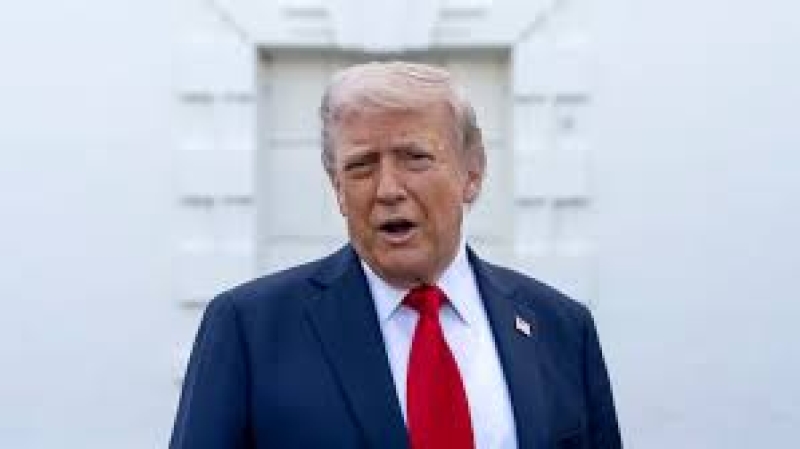- India Sees 9% Drop in Foreign Tourists as Bangladesh Visits Plunge |
- Dhaka Urges Restraint in Pakistan-Afghan War |
- Guterres Urges Action on Safe Migration Pact |
- OpenAI Raises $110B in Amazon-Led Funding |
- Puppet show enchants Children as Boi Mela comes alive on day 2 |
Trump Suggests Zelensky May Be Willing to Cede Crimea to Russia

US President Donald Trump has expressed his belief that Ukrainian President Volodymyr Zelensky might be open to ceding Crimea to Russia as part of a peace deal, despite Ukraine’s repeated rejection of such proposals.
When asked if he thought Zelensky was prepared to give up control of Crimea, which Russia annexed in 2014, Trump responded, "I think so."
Trump also urged Russian President Vladimir Putin to "stop shooting, sit down and sign a deal," claiming a peace agreement could be reached within two weeks. These comments were made after Trump’s brief meeting with Zelensky at the Vatican, where both leaders were in attendance for Pope Francis' funeral.
Trump described the meeting as “going well,” mentioning that Crimea was discussed only briefly. He also noted that Zelensky appeared “calmer,” possibly referencing the tense encounter between the two leaders during Trump's February visit to the White House.
Ukraine has consistently rejected territorial concessions, maintaining that such discussions should only take place once a ceasefire is in place. Neither Zelensky nor Putin have publicly commented on Trump’s remarks.
On Sunday, German Defence Minister Boris Pistorius warned against Ukraine agreeing to a deal that involves significant territorial concessions in exchange for a ceasefire. Pistorius told German public broadcaster ARD that Ukraine should avoid agreeing to what he described as Trump’s proposal, calling it “akin to a capitulation.”
"Ukraine could have accepted such terms a year ago," Pistorius said. "But they should not go as far as what’s being suggested now. I don't see any added value in this proposal."
Trump had stated earlier that “most of the major points” of the deal were already agreed upon, with reports indicating that Ukraine could be asked to surrender substantial areas of land, including Crimea, under the US proposal.
The BBC has not seen the full details of the US plan, but Reuters reported on Friday that it had seen proposals that include American legal recognition of Russia's annexation of Crimea, along with de facto acceptance of Russian control over other occupied areas, including Luhansk in eastern Ukraine.
In contrast, European and Ukrainian counter-proposals reportedly maintain that discussions over occupied Ukrainian territories should only begin once a ceasefire is in effect.
The US plan also excludes Ukraine’s potential NATO membership and suggests a UK-France led “coalition of the willing” would provide security guarantees in place of US involvement.
Meanwhile, European leaders are pressing for stronger US commitments, potentially involving a NATO-style defense pact for Ukraine in the event of future aggression.
The US also proposes international control over the Zaporizhzhia nuclear plant, currently under Russian occupation, which would supply electricity to both Russia and Ukraine. The counter-plan does not mention providing Russia with any control over the plant’s power.
Trump reiterated his stance on the conflict in an interview with Time magazine, blaming Ukraine’s NATO ambitions for triggering the war and stating, "Crimea will stay with Russia."
US Secretary of State Marco Rubio added his voice to the calls for a swift resolution, urging both Russia and Ukraine to finalize a peace deal. "It needs to happen soon," Rubio said on NBC, emphasizing that the US could walk away from negotiations if no progress is made.
Russia’s invasion of Ukraine in 2022 has left Moscow in control of nearly 20% of Ukrainian territory, and the situation remains uncertain as peace talks continue.

